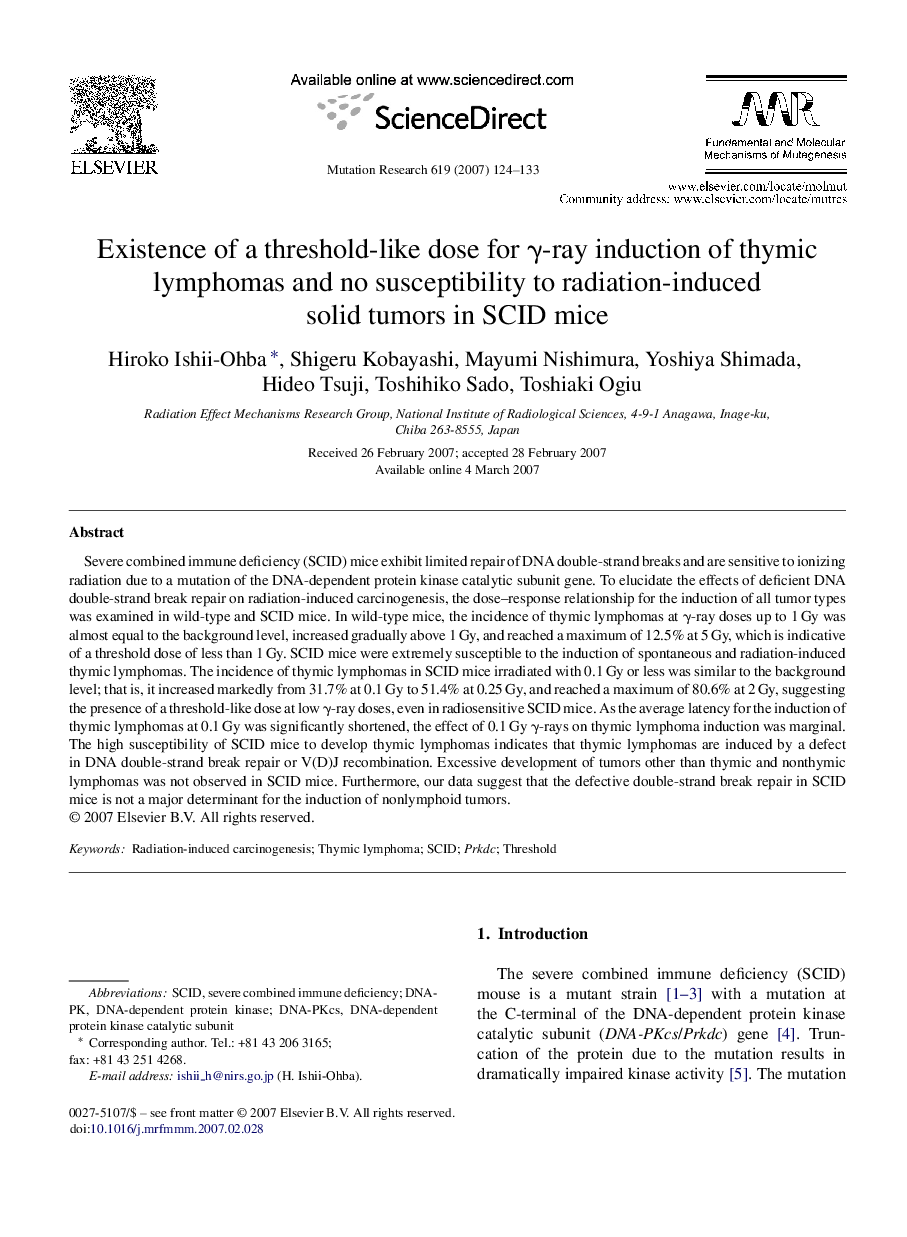| Article ID | Journal | Published Year | Pages | File Type |
|---|---|---|---|---|
| 2147390 | Mutation Research/Fundamental and Molecular Mechanisms of Mutagenesis | 2007 | 10 Pages |
Severe combined immune deficiency (SCID) mice exhibit limited repair of DNA double-strand breaks and are sensitive to ionizing radiation due to a mutation of the DNA-dependent protein kinase catalytic subunit gene. To elucidate the effects of deficient DNA double-strand break repair on radiation-induced carcinogenesis, the dose–response relationship for the induction of all tumor types was examined in wild-type and SCID mice. In wild-type mice, the incidence of thymic lymphomas at γ-ray doses up to 1 Gy was almost equal to the background level, increased gradually above 1 Gy, and reached a maximum of 12.5% at 5 Gy, which is indicative of a threshold dose of less than 1 Gy. SCID mice were extremely susceptible to the induction of spontaneous and radiation-induced thymic lymphomas. The incidence of thymic lymphomas in SCID mice irradiated with 0.1 Gy or less was similar to the background level; that is, it increased markedly from 31.7% at 0.1 Gy to 51.4% at 0.25 Gy, and reached a maximum of 80.6% at 2 Gy, suggesting the presence of a threshold-like dose at low γ-ray doses, even in radiosensitive SCID mice. As the average latency for the induction of thymic lymphomas at 0.1 Gy was significantly shortened, the effect of 0.1 Gy γ-rays on thymic lymphoma induction was marginal. The high susceptibility of SCID mice to develop thymic lymphomas indicates that thymic lymphomas are induced by a defect in DNA double-strand break repair or V(D)J recombination. Excessive development of tumors other than thymic and nonthymic lymphomas was not observed in SCID mice. Furthermore, our data suggest that the defective double-strand break repair in SCID mice is not a major determinant for the induction of nonlymphoid tumors.
